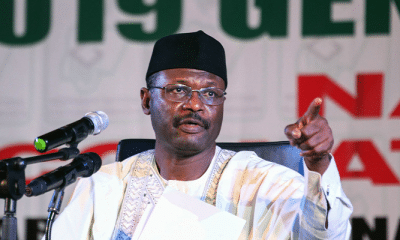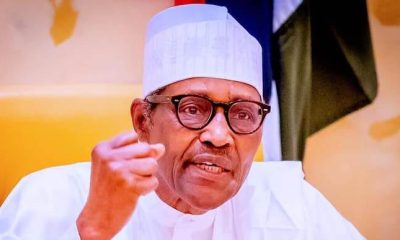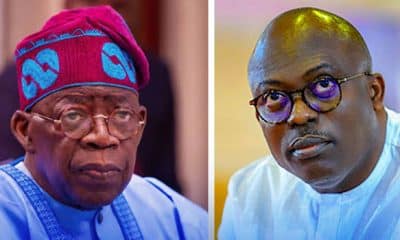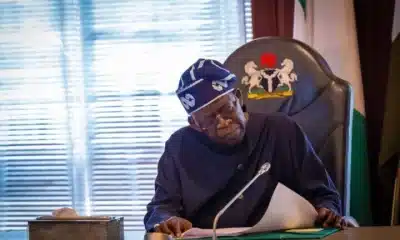Nigeria News
Minimum Wage: Seven Important Things Buhari Said While Inaugurating Technical Advisory Committee

Buhari Inaugurates Committee On Implementation Of New Minimum Wage
President Muhamamdu Buhari today inaugurated a Technical Advisory Committee on the implementation of the new National Minimum Wage and reiterated his commitment to its implementation
Inaugurating the committee shortly before the Federal Executive Council (FEC) meeting, Buhari restated his commitment to an upward review of the minimum wage “as it is time to do so’’.
Naija News reports that this is coming after Organized labour had on Tuesday, staged protests in almost all the states across the federation, calling for the N30,000 Minimum Wage to be implemented.
While the President appointed Bismarck Rewane as head of the newly inaugurated Technical Advisory Committee on the implementation of a National Minimum Wage, he noted that ‘the last time Nigeria’s national minimum wage was reviewed was in 2011. It is therefore evident that a review is necessary, despite the prevailing fiscal challenges. This is why I constituted the Tripartite Committee of Government, Organized Private Sector and Labour to consider the National Minimum Wage and make recommendations to Government for its upward review’.
Bismark is an Economist and Financial Expert, while other members of the Committee are experienced economists and administrators from the private sector working together with all the relevant officials in the Government.
The President pointed out that the Committee has since submitted its report with some recommendations. We are currently working on the final steps that will lead to the submission of a National Minimum Wage Amendment Bill to the National Assembly he added.
See Below the seven important things he said about the Minimum Wage bill
- I want to make it clear that there is no question about whether the National Minimum Wage will be reviewed upwards. I am committed to a review of the Minimum Wage.
- Also, it is important to explain that even though the subject of a National Minimum Wage is in the Exclusive Legislative List, we have been meeting with the State Governors because it is imperative that the Federal Government carries the State Governments along in determining any upward review of the minimum wage for workers.
- This is especially necessary considering the prevailing public sector revenue challenges, which have made it extremely difficult for some of the governments to pay workers as and when due.
- As you know we, at the Federal level, have made adequate provision for the increase in the Minimum Wage in our 2019 Budget proposals which we submitted to the National Assembly. Therefore, we will be able to meet the additional costs that will be incurred in moving up all personnel who are currently earning below the new minimum wage.
- However, we anticipate that after the new minimum wage has been passed into law we will be going into negotiations for salary review for all the workers who are already earning above the new minimum wage. It is therefore important that we are properly prepared to meet these demands.
- We must therefore look at ways of implementing these consequential wage adjustments in a manner that does not have adverse effects on our national development plans, as laid out in the Economic Recovery and Growth Plan (ERGP). The ERGP sets appropriate targets for levels of Capital Expenditure, Public Debt, Inflation, Employment, etc. It is absolutely important that the implementation of a new minimum wage does not adversely affect these targets, and thereby erode the envisaged gains for the workers.
- It is against this background that I have set up a Technical Committee to advise Government on how best to fund, in a sustained manner, the additional costs that will arise from the implementation of the consequential increases in salaries and allowances for workers currently earning above the new minimum wage.












